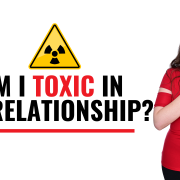Discover the Advantages of an AASECT Certified Provider
Sex and intimacy therapy is an important aspect of mental health and wellness. Yet it can be difficult to know where to turn for help. That’s why it’s so important to seek out a provider who is AASECT-certified.
In this blog, we’ll explore the skill sets of these certified providers and what makes them the best choice for anyone seeking transformation and healing in the realm of intimacy and sexual health. AASECT Certified is a big deal when it comes to the accreditation board. AASECT certification is a way to prove that a person has enough knowledge and experience in the fields of sexuality education, counseling, and therapy to meet certain standards.
Are you having trouble getting close to people or having sexual problems that are affecting your overall health? Seeking help from an AASECT certified provider can be a life-changing decision that helps you improve your sexual health and overall happiness.
Here are some common reasons someone seeks sex therapy:
- To overcome sexual dysfunction or discomfort
- To improve communication and intimacy in their sexual relationship
- To address past trauma related to sexual experiences
- To explore and understand their own sexual desires and preferences
- To address issues with sexual identity or orientation
It’s important to remember that reasons can vary, depending on things like culture and personal values. Furthermore, individuals and couples can talk to an AASECT-certified provider about these needs in a safe, non-judgmental, and private setting.
AASECT stands for the American Association of Sexuality Educators, Counselors, and Therapists. To get this additional certification, professionals in their field had to meet certain requirements for education, training, and experience, as well as pass an exam to get a license in their field. This is over 90 hours of knowledge for therapists and 200 additional hours for clients.
Most of the time, AASECT-certified professionals work with individuals, couples, groups of three or more. And families to solve a wide range of sexual and relationship problems. The variety of topics that AASECT Certified providers are experienced in includes. But is not limited to, sexual dysfunction, low sexual desire, sexual trauma, and LGBTQIA+-related lifestyles.
They also work with clients to improve communication, intimacy, and romantic and sexual satisfaction in their relationships.
In the fields of sexuality education, counseling, and therapy, AASECT certification is a well-known standard. It shows that the professional has a high level of knowledge, skill, and expertise in this area.
If you are interested in learning more about AASECT certification, you can check it out on their website.
The Power of AASECT Certification
The American Association of Sexuality Educators, Counselors, and Therapists (AASECT) is a professional organization that sets the standards for best practices in the field of sexuality education and therapy. By becoming AASECT Certified, a provider has shown that they understand the complexities of human sexuality and are committed to ethical and evidence-based practices.
This certification is not just a badge of honor; it’s a guarantee of quality.
When you see an AASECT-certified provider, you can be confident that you’re working with someone who has the knowledge, skills, and experience needed to help you achieve your goals.
The Importance of Communication 💬
One of the most important skills of an AASECT-certified provider is the ability to help people talk to each other in an open and honest way. This is especially important in intimacy therapy, where the topic is often sensitive and hard to talk about.
AASECT-certified providers are trained to create a safe and non-judgmental environment where you can feel comfortable talking about your feelings, experiences, and desires. They are also good at helping you figure out what you want and say it, and they can help you get past any problems that might be getting in the way of your sexual and intimate happiness.
Achieving Transformation through Sex Therapy
The main goal of intimacy therapy is to help you get over any trauma, problems, or other things that are stopping you from having a fulfilling and satisfying sex life.
AASECT-certified providers have the expertise and experience needed to help you achieve this transformation. They use evidence-based techniques and strategies to address a wide range of issues, from low sexual desire and performance anxiety to sexual pain and trauma recovery.
By working with an AASECT-certified provider, you can expect to see real, meaningful change in your life. Whether you’re seeking to improve your sexual relationships, better understand your own sexuality, or overcome a specific challenge, these certified providers have the skills and experience to help you get the results you’re looking for.
Taking the First Step
If you’re ready to take the first step on your journey towards sexual and intimate wellness, consider reaching out to an AASECT-certified sex therapist to understand what they have to offer you.
With their expertise, compassion, and commitment to your success, they have the power to help you achieve the transformation you’re looking for.
If you’re looking for a provider, it’s important to choose someone who is AASECT-certified. This will ensure that you’re working with a qualified professional who has the necessary skills and experience to help you achieve your desired transformation.
In summary, an AASECT certified provider is a professional who has met strict standards of knowledge and experience in the fields of sexuality education, counseling, and therapy.
They can help you deal with trauma, improve your sexual function, and make your relationships feel closer. If you’re struggling with intimacy issues or experiencing sexual difficulties, seeing an AASECT certified provider can be a life-changing decision that helps you improve your sexual health and overall happiness.
Ready to learn more on your own? Check out the video I made on AASECT certification here.
Sign up for the IAM landing page to take our course in the future.
About Life Coaching and Therapy
Life Coaching and Therapy (LCAT) is a therapy and coaching practice that transforms our clients lives through our flexible. Multi-technique approach and pleasure-skills training provided by systematically-trained and licensed therapists!
 Get to know our founder and owner, Amanda Pasciucco, (a.k.a. The Sex Healer) PhD, Licensed Marriage and Family Therapist (LMFT), and an AASECT Certified Sex Therapist (CST) that has developed innovative therapy programs and therapy videos that get results.
Get to know our founder and owner, Amanda Pasciucco, (a.k.a. The Sex Healer) PhD, Licensed Marriage and Family Therapist (LMFT), and an AASECT Certified Sex Therapist (CST) that has developed innovative therapy programs and therapy videos that get results.
Our team of compassionate, licensed therapists and certified sex therapists help all clients who visit us for a variety of personal, relationship, intimacy and sex problems.
LCAT provides on-site appointments, as well as video chat and text therapy programs.
Learn more about how LCAT can help improve your life at What We Do.
 Get to know our founder and owner, Amanda Pasciucco, (a.k.a. The Sex Healer) PhD, Licensed Marriage and Family Therapist (LMFT), and an AASECT Certified Sex Therapist (CST) that has developed innovative therapy programs and therapy videos that get results.
Get to know our founder and owner, Amanda Pasciucco, (a.k.a. The Sex Healer) PhD, Licensed Marriage and Family Therapist (LMFT), and an AASECT Certified Sex Therapist (CST) that has developed innovative therapy programs and therapy videos that get results.






















